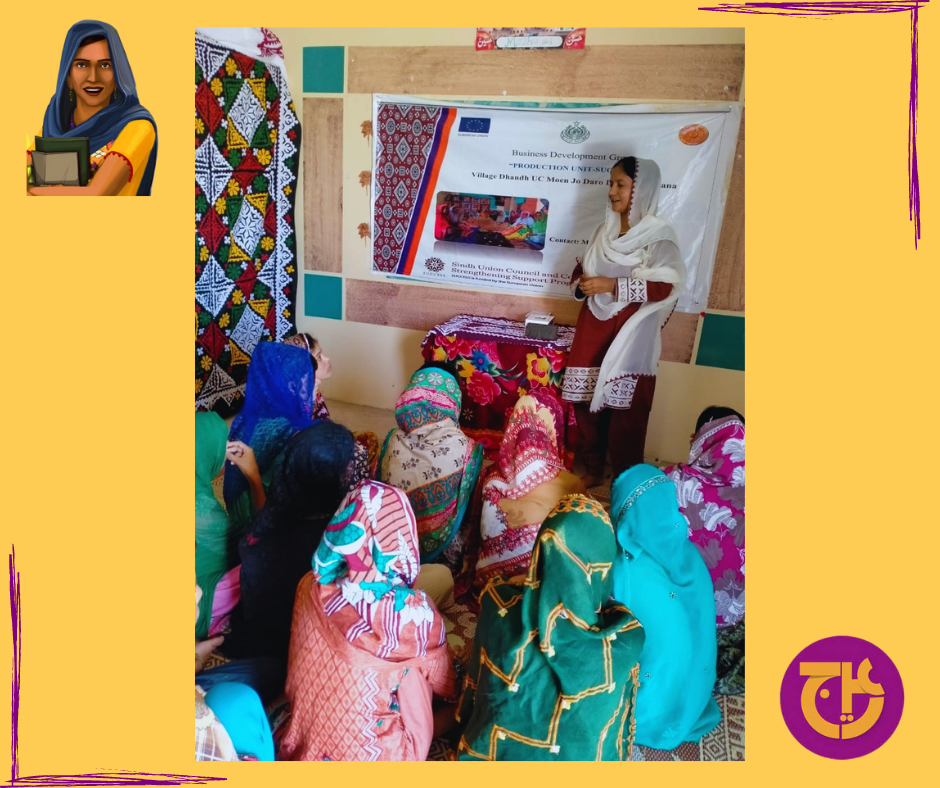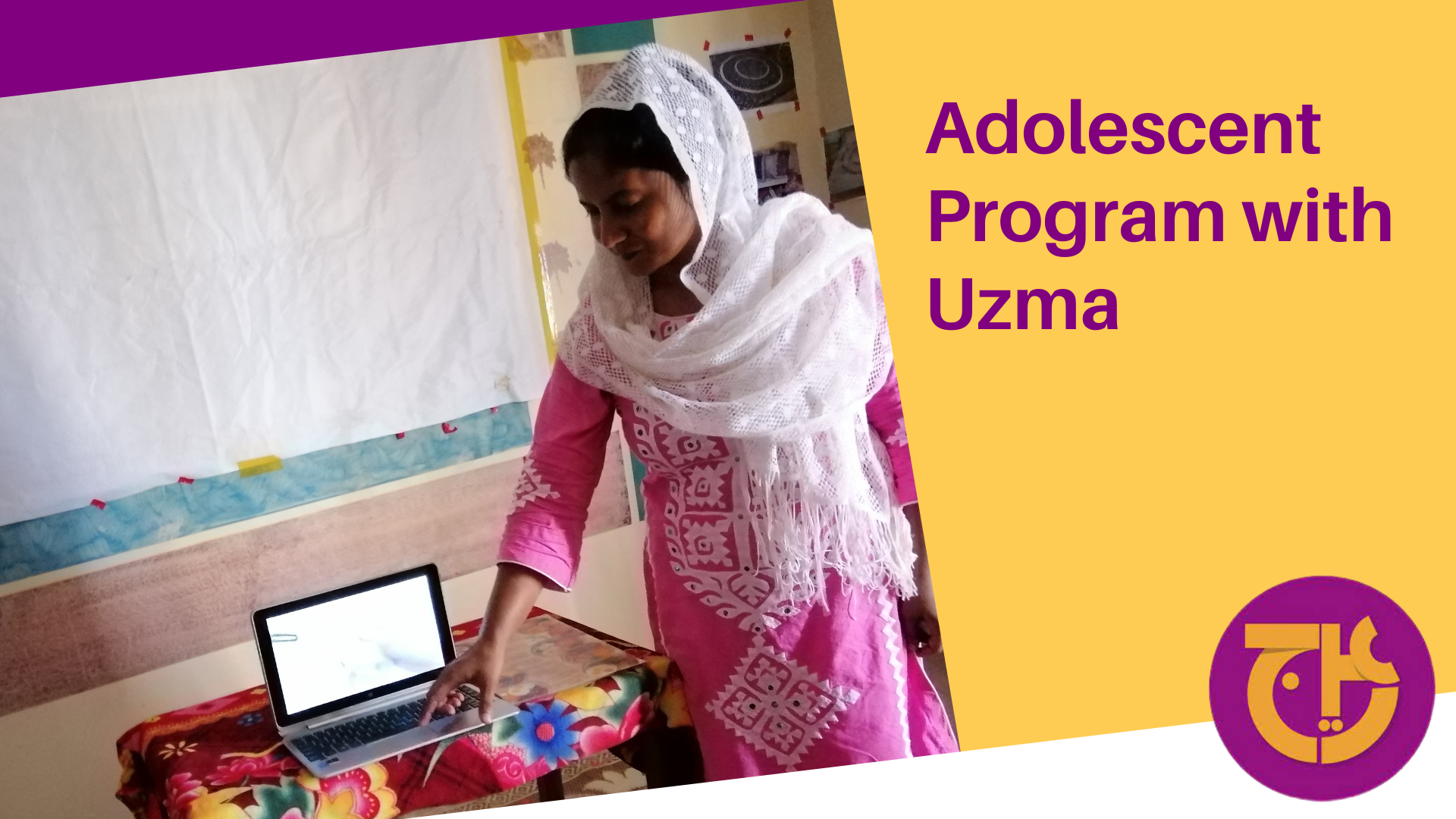Champion Uzma launches an Adolescent Program
Uzma, Raaji Room leader implementing digital methods to teach adolescents in her village about menstruation
Raaji Rooms was originally created with the goal of providing digitally inclusive learning centers and safe spaces for rural women and girls seeking a long-term digital solution for their socio-cultural, economic, and health recovery following the pandemic.
Now we thought it was time to test whether our Raaji Room leader, Uzma from village Dundh was ready to lead digital interventions to educate her community's adolescents.
Uzma organised an adolescent program, inviting 12 adolescent girls from her community to get menstrual education through an online channel. Uzma was able to connect with us through a Zoom call, since she received digital literacy training from us, which helped her in setting up and operating her own Gmail and Zoom accounts.
Uzma ran a 1-hour session. To begin, she showed her audience Raaji's first period story and “Mere Pehli Periods Ki Kahani” over a smartphone. Uzma spoke about the basics of menstruation, including the menstrual cycle, its duration, average age, and health implications.
Meanwhile, she engaged the girls by asking them questions about their menstrual experiences and issues. Some participants said that they told their mothers about their menarche and that they experienced difficulties at the time of their first periods.
We also interacted with the adolescent girls in order to have a conversation with them about common misunderstandings and myths that exist in our society. We made use of a presentation to list some of the terms for menstruation that are commonly used in Sindh villages, such as ‘Maheeno (month), menses, Kapra (cloth), Mahwari (monthly), Sunnat, and so on. We noticed that the women of Dundh village commonly use the term Mahwari for periods.
Through the images of children going to school, fish, milk, showering, cooking, touching, or eating pickles, we found which superstitions are prevalent in the community.
One of the participants talked about the importance of hygiene, stating that they can touch or make the food with clean hands during the periods. This made us realize how important cleanliness is to the girls in this village, especially during periods. They also mentioned that they skip school during their periods, and we told them that missing school would only affect their grades and performance and that with safe and effective menstrual products, they could attend school during their periods. We then showed them what Raaji The Chatbot has to say regarding the misunderstandings, and we observed that after watching/listening to Raaji, the girls became more active in participating.
The session went on, Uzma showed two other videos over a smartphone on Menstrual Hygiene Management and the Padman Film Trailer as her goal was to lessen the girls' fears and give them engaging and interesting information about menstruation. Later, she addressed the proper usage of cloth pads and sanitary pads. As a result of such an intriguing talk, the girls' courage to express their thoughts grew more.
Lastly, we spoke with them again and asked about their insights from the session. They seemed happy and reiterated some of their newfound knowledge, including not missing school, eating fish, drinking milk, showering, and not hesitating during periods. Connecting with such rural communities remotely was extremely difficult, but Uzma's determination and active learning approach made it happen.
.png)

